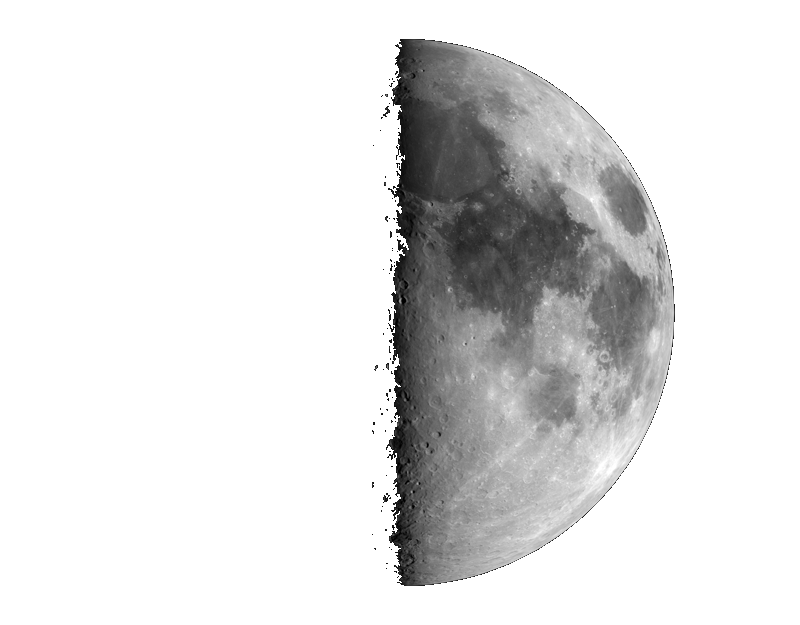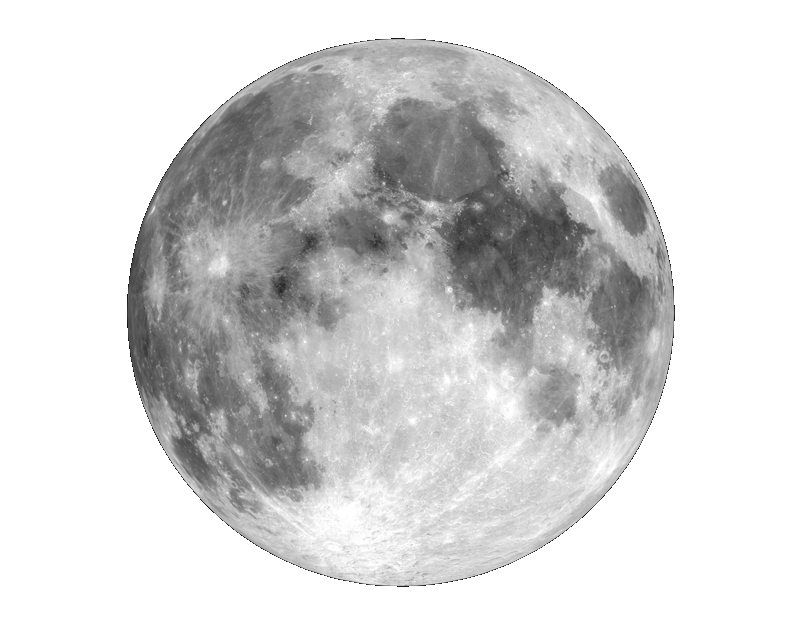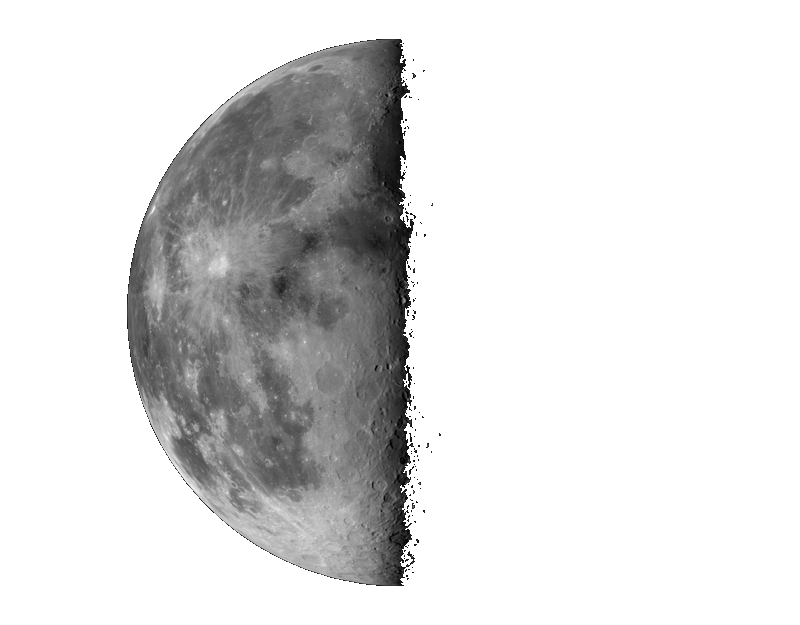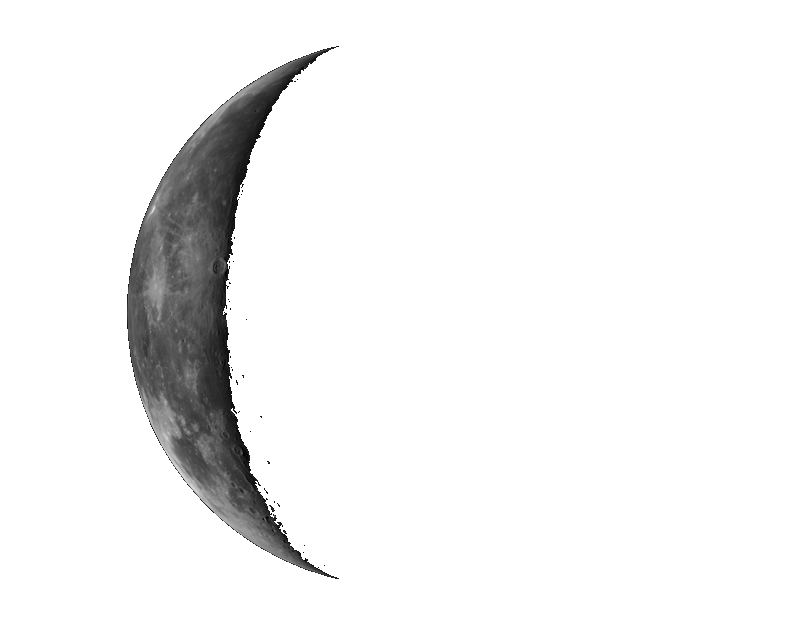Is wild capitalism the best humanity has to offer to the Solar System ? (updated May 30th 2020)
The first version of this paper was published on my web site in January 2018, meaning long before the major pollution of the sky which are the Starlink satellites and before the covid19 pandemy... This second version is written on May 31st
Some American stories…
There is a story going on, mainly in the USA, saying something like “exploration of the Americas was first done by the governments (Isabel of Spain financing Columbus expeditions, etc…) then most of it was done by the private industry. Therefore space exploration should be done the same way, NASA and other space agencies have done their time, and now exploration of the Moon, Mars, mining of asteroids, etc… should be left to the hands of the private sector”.
Indeed, colonization of the Americas was done by the private sector. It caused the genocide of millions of people and the slavery of millions of others brought from Africa in less than humane conditions. Summing everything up, can it be called a “success story”, one of which humanity can be really proud of? Can the fortune of a few billionaires justify the misfortune of hundreds of millions of people? Or can we talk about one thing while forgetting to talk completely about the other. Could have it been done otherwise? What is done is done, could have been better or worse, but then how and why is the “therefore” in the above paragraph mandatory? Could we think before letting exploration of the solar system to the hands of a few careless entrepreneurs interested only in their short term profit?
Another story we hear frequently is the citation from Konstantin Tsiolkovsky (1857-1935) saying something like “Earth is the cradle of humanity, but one cannot live in a cradle forever.” And the answer is that if the conditions outside of the cradle are not made for humans, we’d better stay in the cradle in which life has been developing for billions of years, and do all possible efforts to preserve it, because this is the only one we have. Have the people who talk about permanent space colonies given any serious thoughts about the reality of life in such colonies? If Moses had gone out of its cradle, while floating on the Nile river, he would just have drowned, and we would have had maybe different religions on Earth . Damned Moses, too bad :) Moses was a smart baby, he stayed in his cradle, and Tsiolkovsky was a dumbass.
Space debris:
So far, space exploration has mostly been done by the space agencies of the various governments which have felt necessary to launch rockets (and missiles) into space. The primary motivation has never been science or the progress of the society, but has been military. In the late fifties, there was a group of engineers who dreamt about rockets. Had basically no funding, and had to go to a Canyon in nearby La Cañada to test their toys. After Sputnik, almost instantly, it became the Jet Propulsion Laboratory, with a bit more funding than before. The truth is that the public part of the space activities has been developed as a side effect of the military space activities (said otherwise, there is one Hubble Space Telescope, while the US Air Force has launched 11 of them for spying purposes). I have participated in “space debris” meetings in the early 90s, and there are still such meetings, and nothing, absolutely nothing has been done to reduce the quantity of trash which has been sent and continues to be sent in space. The quantity of space trash keeps increasing with time (google "space debris" to see the evolution). And this is the result of the programs of (supposedly responsible) space agencies. There is already something like 250 tons of terrestrial debris on the surface on the Moon, the totality of it coming from government agencies and I could not find the value for the Mars, or how many tons of trash has been sent into “deep space”.
Right now the priority should be to decrease the number of objects in space, not to increase it. Starlinks and whatever will come after that is going to multiply the number of objects in low earth orbit by a factor of 5. Who are the idiots who authorized such pollution of our skies ?
This is of course related to a current trend allowing private businesses to make their money without having to respond of the pollution they cause. And even if it was not made by a private society but by a government, it still should not be allowed. Imagine if the Brazilian government decided to destroy all of its rain forest in Amazon. Legally, that state has a right to do whatever it wants with its territory, but it should not because it would affect the world's atmosphere and therefore increase global warming which has global and not Brazilian only repercussions... Here with Starlinks we have exactly the same situation, in order to earn an estimated several billions of US dollars per year, a private company decides to pollute the sky and nobody is there to stop them. Elon Musk is another dumbass, and a harmful one.
Access to space should be granted only to government institutions. Launching tens of thousands of satellites more is crazy. They won't be 100% reliable. If only 99% reliable, it means that with 10000 satellites, 100 will be out of control. And they might collide. Kessler imagined it, Elon Musk is going to do it. And again, a private company will have suppressed access to space to the rest of the world.
Space tourism:
Then there is also “space tourism”. Also called “the most expensive vomiting you can get during your lifetime”. Or how very rich people will be able to pollute our atmosphere, just for a few moments in weightlessness, and the impression of being a space hero… Because, it makes sense (?) if you go to space, you are a hero (???). Then you will be able to say, with a vibrating voice, like most of these astronomy ignorant astronauts “that you discovered how fragile our Earth is, as seen from space”. Of course, after having burned tens of tons of kerosene in the atmosphere. So much for your ecological considerations…. If life appeared on Earth and not anywhere else, it’s for a good reason: we can live here, and not elsewhere. At least if we don’t kill each other anytime soon. Buy a telescope, look at the other planets, study a little bit what they are like, and you learn very quickly that Earth, at least the 10% that can be inhabited, is a wonderful planet, no need to pollute the atmosphere and nearby space to find out. Again access to space should be allowed only for missions which can not be done otherwise, and "having fun" is not one of them.
Space "defense":
In 1973, astronomers knew about 30 Earth Crossing Asteroids. When they started to study the moon, they realized there were many "young" craters on its surface, and also that there had to be many more Earth Crossing Asteroids than what was known at the time... So they started searching, and found them. To make a long story short, today, we have discovered more than 20000 Near Earth Objects and are still discovering more (see the right part of https://www.minorplanetcenter.net/ ). Of course by Earth crossing asteroids, we are thinking very large. Less than 50 of them do really cross the orbit of the Earth and out of these 50 or so, only 4 are worth mentioning, the others being about as big as the rock that shook Siberia in 2013. But even for these 4 asteroids ( 2015 AN193, 267131 aka 2000EK26, 2016 FG60 and 2017FD157), the probability that they are crossing the orbit of the Earth just at the moment while the Earth is there is very very very small. The PHA (potentially hazardous asteroids) are all asteroids which orbits get closer than 7.5 millions of km of the orbit of the Earth. This is not exactly "near" Earth. Then NEOs are a much larger population, but some of them, in the distant future could become Earth Crossing Asteroids and eventually collide with us. Distant future meaning thousands of not millions of years. The big ones (dinosaur killers) were the easiest ones to find, and basically the last one was discovered in 2004. Of the 54 very large Near Earth Objects (H<15), only 4 were discovered in our century, and none was discovered after 2004, despite much better search telescopes. In the 2000s, we were basically still discovering about 100 large NEOs (H<18) per year, and today with better search telescopes, we find less than 15 per year. None represent a substantial danger, and the homeopathic probabilities of impact is just a reflection of the uncertainty with which their orbits are known. It is relatively important to continue the search programs, and make sure that no asteroid do represent a danger in the near future. It is more than likely that no big asteroid will hit the Earth in the coming century, the same way as no big asteroid has hit the Earth in the last 1000 years. Very small asteroids may hit the Earth like in Siberia in February 2013, but these objects really do not represent a danger such that we would need to discover all 20 meters asteroids out there. Said otherwise, if you read a text or see a documentary about Near Earth Asteroids and the writer talks about the dinosaurs or Chelyabinsk, he/she is talking bullshit. The big ones are known, and do not represent any threat, and the small ones, like in Chelyabinsk, are too small and numerous, and we will never discover them all. On that day in Siberia, in that city, the people who died, died of "terrestrial causes" (cancer, age, infarctus, car accidents, etc...) but not because of the tiny asteroid. Some were cut by glass debris, but looking at the numbers, we may have 3 such tiny asteroids hitting the Earth per century, but since only 3% of the Earth is inhabited, such a small impact over a city on average occurs every 1000 years. Idiotic politicians do kill many more humans than tiny asteroids even those who were given the Nobel Peace Prize. The problem is that when we started to discover more and more of these asteroids, a ridiculous "side effect" occurred. We got many people, mainly from the "militaro industrial lobby" which started to think about what to do in the completely impossible case where we would detect a "dangerous" asteroid. And since these people only think in terms of enemies, they had found a new one, for which it was absolutely essential to do something "now". So there are now regular "space defense meetings" where some not too serious scientists plays at simulating an imminent impact on Earth, and some other people try to see how we could "mitigate" a dangerous asteroid. By not too serious, I mean they believe they are dead serious, and that makes it even more laughable, they are ridiculous. Since the next very big impact is in all probability won't happen in the next 10000 years, and since we don't even know if there will still be humans in 10000 years on Earth, it's indeed a very high priority to spend billions of dollars to "mitigate" perfectly harmless asteroids.
Asteroid mining:
In the same delirium, nowadays we hear more and more rumors about various companies who, despite all international agreements (mainly https://history.nasa.gov/1967treaty.html ), want to do asteroid mining and the type of enterprises based on the idea that it’s easier and less expensive to extract metals at 500 million of km from the Earth in near weightlessness and bring them back to us than to recycle the resources we have already here at home. Mining will be very likely either a robotic or adult astronauts adventure. Can we count on the private companies destroying asteroids to clean their mess after they are done? Private companies are only interested in profit and usually a short term one, and if we look at how government agencies have been able to transform earth surroundings into a gigantic trash without doing anything about it, we can only imagine what will happen when it will be done by private companies. I would of course prefer to say “if it’s going to be left to the private sector”. Just after the first crew dragon launch, the person who serves as president of the United Bullying States of America made an absolutely crazy speech (on many grounds), and mentioned in it the fact the "he" signed documents allowing american companies to exploit the mineral of the objects in the solar system... just in contradiction with the treaties that the USA signed when it was governed by a president with an IQ higher than his shoe size. See, if you have time to listen to one stupid statement after another one, starting after 15 minutes in https://www.youtube.com/watch?v=KqlSMFXo3po That idiot brought his country back 50 years, ready to go to the moon and at the same time, with racial riots in the streets, he is just missing another Vietnam war... Back to the future, except Biff is president.
Colonies on the Moon and Mars:
And if going just 100 km in our atmosphere is not enough, pretty soon, we will have colonies on the Moon and on Mars. Tadaaa….:) We know perfectly that life on the Moon or Mars will mean people will have to live underground, almost never seeing the light of the sun, except during very brief intervals of lower solar activity, in order to repair the robots which will do the work on the surface. The failure of Biosphere 2, which was not even remotely close to real martian conditions should be reason enough to think twice about space colonies. Since it’s quite easy to do the experiment, I would indeed recommend to select some idiots, sorry, I meant volunteers, and ask them to stay in some cave for years on, and try to have kids, and raise them, before we do the experiment on Mars, which will have much more difficult conditions. Let’s allow them go back to normal life only once every two years, and let them die if they miss something in the meantime, like if they were on Mars.
Apart from nationalism and militarism, there is absolutely no other reason to go and pollute other worlds.
There are two different aspects to consider : Being the first to go the moon, to mars, to hell, and what not. You go, you plant your flag, you show you piss farther than your "enemies", and you come back to Earth, you feel great. This is pushed by nationalism, and when the "exploit" has been done, the government stop the expeditions like the USA did when they ended the Apollo program. Very likely some humans will reach Mars during our century, while in the meantime we will leave hundreds of millions die of starvation because of the overpopulation... Humanity at its smartest...
Now there is another (ridiculous) theory, which is that of the "multi-planetary species". The idiots who promote this idea say something like "Should a problem occurs on Earth, having humans on another planet would allow our species to continue in the solar system". Fantastic idea. In this case, what's needed is an autonomous group of humans on another planet, very likely Mars, because while uninhabitable, the other planets in the solar system are much more uninhabitable than Mars. It requires the group to be autonomous in terms of oxygen, water, food, energy. It requires to be large enough so that all the knowledge required for the group to survive are available (i.e. engineers, doctors, physicists, chemists, biologists, etc, etc...). It require a vast amount of energy. On Earth we need energy so as to maintain a temperature of about 20°C. Sometimes it's higher, sometimes it's lower. When it's freezing we need more energy, but only to gain something like 20 or 30° at worst. On Mars, the normal temperature is -65°, so you need much more energy than on Earth just to feel confortable. And on Mars this energy is not of fossil origin, nor can it be from the wind, the rivers, nor solar, since solar energy is periodically unavailable during months because of dust storms. The only reliable energy source would have to be nuclear. As far as I know, there has been no uranium or thorium mining on Mars, building the plants to refine uranium on Mars, then the nuclear power plant would represent a quite large part of the human GNP during years. This is the goal to reach, if this story of "multi-planetary species" has to become a reality. If the colonies on Mars and the Moon depends on Earth, if there is a problem on Earth, these colonies will just die when they run out of energy and supplies. And no, you can't grow potatoes using human shit. The other option to multi-planetary human societies is just to organize our current society, on earth, in order to be more resilient. The current (2020) covid 19 pandemy teaches us the mistakes which have been done, and organizing us in order to avoid such large scale health and economic disaster is a lot less expensive than to create independent societies barely surviving on other planets. A lot less expensive means several orders of magnitudes less expensive.
On a personal note, I felt bad to have to raise my children in a city, when I was lucky to spend a lot of time on the country side when I was a kid. During the warm period of the year, I went very often fishing with my father on the Moselle river. He would wake me up at 4am, and we would go with a small fishing boat try to catch some pikes (and we did !). In the spring, we would go collect daffodils in the Vosges mountains, or going in the nearby woods in early May to collect May Lilies, which have such a nice perfume. Mushroom hunting was also something special in the autumn months. I would go and play with the kids of the neighborhood afternoons after afternoons, swimming in the Moselle (but not after 3PM, because before it was prohibited). I can say I had a happy childhood. Later I lived in a city and unfortunately, my kids were not as lucky as I have been. We would, on Sundays, go to a nearby “park” where there were a few thousands other persons, and would go back home in the traffic. It was not really fun. But then, that’s way much better than having to raise your kids in a space more or less the size of a commercial airplane, with the same permanent noise, only artificial lights, etc... I am trying to imagine all kind of scenarios about these extraterrestrial colonies and don’t find any which would be enviable compared to regular, healthy, terrestrial life. Would you want to have and raise children on a deadly planet ?
Dreaming of changing Mars in a second Earth, while transforming the Earth in a second Venus :
The development of science and technology has led to two contradictory consequences: the exponential growth of human population, and, at the same time, with the machine, less need for working people, who are being replaced by machines. The coming of age of AI (Artificial Intelligence) will only increase this trend. More people, more pollution. While we need less people, but more educated, the trend is to have more people and less educated. If there is one urgent thing to do on Earth, it’s to take care of this problem. Not the terraforming of Mars or other ridiculous idea, which must have come from quite perturbed minds. We need more education, less people. There are only two ways to reduce the world population, which are to increase mortality, or decrease birth rate. If we don’t do anything, and if we leave the “defense” lobbies control the politics, the first option will be chosen. By “defense” lobby, I mean of course all the businesses which also profit of the general idea of “space exploration”, and of course human "space exploration". War, today is by far the more expensive option. To give a concrete example, the second, completely illegal, Bush war in Irak did cost the USA 3 billions of dollars. It killed (to make a round number) 300000 Iraqis (Saddam Hussein did only a little more but for much less money). Said otherwise, each Iraqi killed did cost 10 millions of dollars to the American taxpayer, it would have been much less costly to pay for the education of the whole country, increase their wealth level, they would have reduced their birth rate in the following generation, etc… One can of course argue that the US population being 326.5 millions today, each Iraqi killed did cost only 3 cents to each American, still American with brains (there are still a substantial number of them) should be relatively unhappy and not particularly proud of their country predatory behavior. Global warming is only one side effect of the overpopulation of Earth, and you nevertheless find idiots who pretend that it’s not related to human activity, some of them are even elected to very important political positions. We keep deforesting the Earth, polluting the oceans, we go slowly but surely toward the “venus-isation” of the Earth. If we continue the current trends, we will have exhausted all the fossil fuel in another century, the atmosphere will be polluted, global warming will be a really serious problem. Are they serious?
Thinking about all this, I can only regret that human intelligence is not used where it should be, meaning improving the quality of life of humans here on Earth instead of destroying nature, both here on Earth and in our solar system too. In France, there was a well known screen writer, Michel Audiard, who wrote a few interesting phrases. The first one, through a conversation in a movie (un taxi pour Tobrouk), which translates in english as "a walking asshole will always go further than a sitting intellectual". So indeed if some enterprise goes to Mars, and actually is able to let people survive there, why not. But it's maybe time for humanity to have some thinking before acting. I believe the solar system should be protected from our activities. The second, which applies there is "assholes dare everything, that's in fact how you recognize them" (from "les tontons flingueurs").
If you ask me (and in case you have not understood yet) I much prefer billionaires like Bill and Melinda Gates who invest their money in the well-being of people to persons like Elon Musk who finds it cool to pollute the solar system with his Tesla car and tens of thousands of satellites. Humanity needs education, needs freedom from religions which maintain a vast proportion of people in a state of mind which was adapted to the antiquity but not to the modern world. The Earth should be our priority, it’s our only habitat. And the Solar System should be protected like Antarctica is and not be left to the hands of the private sector. We still should explore it with a few robotic spacecrafts, but the priority is really to save humanity of self destruction, not let some big boys play at Star Trek.
Alain Maury - January 2018 - May 2020
Added February 15th : Interesting conference by Neil de Grasse Tyson, a little bit on the same themes. Here
Partager cette page









